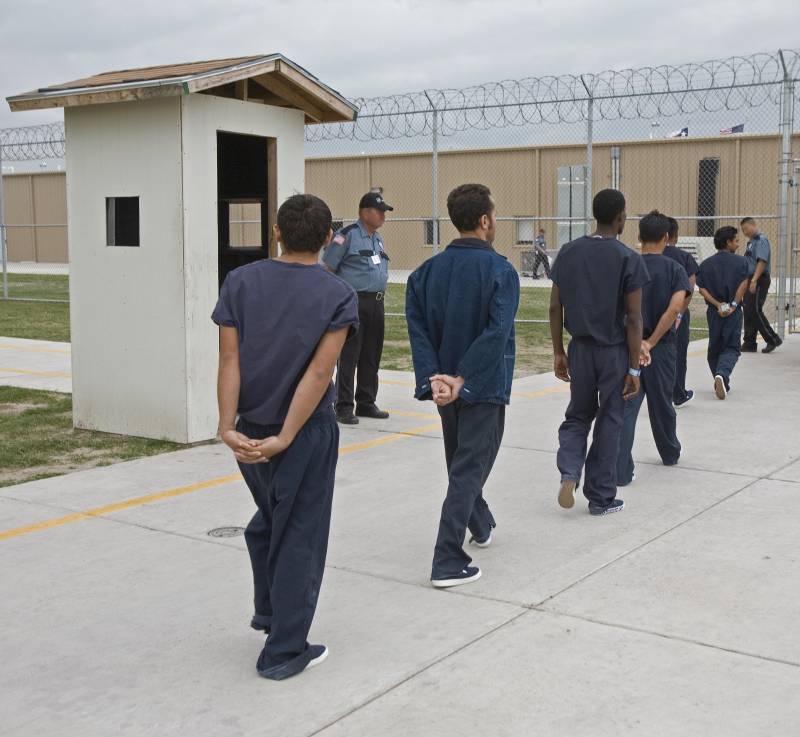People land in detention for a variety of reasons: crossing the border illegally, seeking asylum, work site raids, or overstaying a visa. Most detainees have no criminal record. However, migrants’ DNA samples are registered and held in perpetuity in the FBI criminal database, the Combined Index Data System (CODIS). Historically, that archive has housed genetic information from people who have been arrested, charged or convicted in relation to serious crimes.
Privacy Concerns
Civil rights advocates worry the expanded genetic testing compromises the privacy of people in detention and their families. Some scientists fear the information could wrongfully target a vulnerable population and lead to false criminal convictions.
Vera Eidelman, a staff lawyer with the American Civil Liberties Union’s Speech, Privacy, and Technology Project, calls the program population surveillance. She said the government could use the genetic information to locate family members or even deny people health insurance because DNA is much more powerful than a fingerprint.
“It does not simply identify me as Vera,” Eidelman said. “It also says Vera is related to x, y and z other people. By the way, she also has the BRCA gene or other propensities for medical conditions. It is not simply about identity.”
However, Hank Greely, a bioethicist at Stanford University, worries less than Eidelman about these potential uses. Although it is not explicitly clear what genetic information the government will catalog, experts assume it’s the 20 markers that make up the typical DNA profile in the FBI database. This is not a detailed analysis. It’s much less information than a 23andMe or Ancestry.com test.
“If you had a kid at the border and wanted to know whether its father was in the CODIS database,” Greely said in an email, “you would likely get hundreds of hits, whether or not the father actually was in the database. That’s not very helpful.”
Greely said the government’s efforts to collect DNA are a waste of money because, in his opinion, it’s unlikely the current administration will allow many of the detainees into the country so the likelihood they’ll commit crimes here is also limited.
“If there is no good reason to collect personal data, including DNA data, and it isn’t being done voluntarily, then it’s unethical: some risk for no gain is not ethical,” he said.
This is not the first time DNA collection efforts have alarmed civil rights advocates. California and other states already collect samples from anyone arrested for a felony offense. That has helped to solve crimes, but the practice is also controversial.
Possible Wrongful Convictions
Some scientists fear the program could put the wrong people behind bars because DNA is not foolproof. Someone’s DNA could end up at a crime scene they’ve never visited.
“We pick it [DNA] up and we do transfer it,” said Greg Hampikian, a forensic geneticist at Boise State University. “It’s in the hair we leave behind. It’s on our clothing, cups and utensils.”
DNA can pass between people at a public laundromat, on a toilet seat or even in a bag of donated clothes, and it can last for decades.
“DNA is really excellent at identifying people,” Hampikian said. “It is really poor at telling us how it got there.”
The infamous Amanda Knox trial is an example of how DNA can snare innocent people. In 2007 in Perugia, Italy the 20-year-old American college student was accused of stabbing her UK housemate to death. Some of Knox’s DNA was found on the handle of a kitchen knife. A speck of the victim’s DNA was on the blade. Knox spent four years in prison before an appeals court released her, only to be found guilty again. Finally in 2015, after Italian DNA experts reviewed the case Knox was pronounced not guilty.
Most Americans find DNA evidence strongly persuasive. A 2015 Gallup poll showed that 85 percent of Americans consider DNA evidence to be very or completely convincing. Once a DNA sample is entered into a trial as evidence it is very difficult to convince a jury the accused is innocent.
Future Implications
Charleen Adams, a geneticist at City of Hope National Medical Center in Duarte, Calif., worries the program sets people up to distrust researchers. She noted that people who are forced to relinquish their genetic information at the border may later refuse to volunteer for studies that could directly benefit them, like research on breast cancer in Latinas.
“I feel appalled that that this would slip through without discussion because it is dangerous,” Adams said. “It casts Latinos as would-be criminals. The racial profiling of this program is unconscionable.”
Cybersecurity, she added, is never guaranteed. If the data were to be hacked, they could be used to deny a person employment. Adams also worries about sampling errors at the border, or lab mix-ups that could lead to false negatives or false positives.

